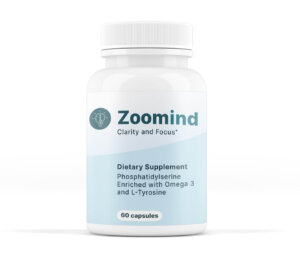We are celebrating the start of the new Jewish year here at IsraelPharm, and it’s a perfect time to highlight some of the best articles about health we published this past year; great content deserves to be celebrated. As the lead writer here, I always intend to share the most current and useful information about health that can improve our lives and those around us. It is my privilege to bring new information to our website, focusing on changes and current news in pharmaceutics.
Revisiting our year-end review to pick out the best blogs from the more than one hundred articles I have authored or contributed to since September 2022 was quite fun! My team and I have noticed some patterns that have emerged, not just from the content itself but from the responses they have elicited from visitors to the site. So, I thought it would be worthwhile to highlight the best articles of the past year and give them the recognition they deserve.
Please know that when you leave a comment or send an email with your thoughts, we read them and consider them as we move forward. We learn from you!
In broader terms, I’ve learned that there are three main categories that you all seem to be most interested in:
- You want to know how to achieve better health and learn how to use medication to avoid disease.
- You are looking for a better understanding of how the medication supply chain has changed since COVID-19 appeared.
- You need reliable sources of information to help you make informed choices about treating conditions with the most appropriate and effective medication.
So, I have reviewed this past year’s material and picked out a few articles that I am proud to have written because I can see from the responses that they resonated with you readers. I am sharing them again here in the hopes that they continue to give them meaningful and helpful information.
Best articles about health – how to sustain good health and avoid disease
 #1 Doctors are still worried about COVID-19
#1 Doctors are still worried about COVID-19
The overwhelming issue has been the after-effects of the COVID-19 pandemic. The earlier hope that the SARS-CoV-2 virus has done its worst damage is receding now that new virus variants keep cropping up. Long COVID is recognized as a real aftermath of infection with the virus.
In March 2023, we published thoughts on achieving protection from the virus under the header “Doctors are still worried about COVID-19: learn what you can do to protect yourself.” The essential point we made was that there is a decline in the effectiveness of vaccination. Taken together with the growing reluctance of people in the broader population to bother to get vaccinated, it means that a more significant proportion of the population is vulnerable to first-time or re-infection. In the face of that, we suggested that taking simple but effective steps for personal protection is the best solution in the face of the increased levels of infection running through the public. Enovid‘s patented nasal spray is designed to stop viruses, including the SARs-CoV-2 virus that causes COVID-19, in the upper airways and prevent it from incubating and spreading to the lungs. Enovid creates a physical barrier in the nasal passages to stop viruses before they can pass through to the lungs. It also creates a chemical barrier of nitric oxide, known for its antimicrobial qualities. The best way to beat COVID-19 is to not get infected; Enovid is a great way to achieve that.
 #2 Coping with Long COVID
#2 Coping with Long COVID
One of the most important observations about the new phenomenon of Long COVID has been its disproportionate effect on older women. Menopausal women have experienced more severe, persistent, and frequent illnesses that may be attributable to life post-COVID-19 infection. Long COVID and menopause have become an area needing special attention because of the large numbers of women now affected by this new disorder.
The NY Times reported, “Women were one and a half times as likely as men to develop Long COVID.” Women who develop Long COVID also show a wider range of symptoms than men. Women are more likely to experience persistent symptoms after infection, even if they initially had a mild illness. In particular, women with Long COVID often report chronic fatigue, which has been well established as more common in women than men. They also more frequently experience neurological symptoms such as memory loss, difficulty concentrating, and even anxiety or depression.
Best articles about health – what’s changing in the supply of medications
 #3 Understanding off-label prescribing
#3 Understanding off-label prescribing
Increasingly, doctors are using their good judgment and skills to make better use of drugs than the slow wheels of bureaucratic processes inside the FDA can. Our article on Understanding off-label prescribing explains how this can benefit patients. It allows physicians to explore new treatment options and tailor treatments to individual patients’ needs. Off-label prescribing can also help patients who have exhausted all other treatment options. About one in every five prescriptions in the United States is written for off-label purposes.
The primary considerations that your doctor would consider when evaluating the prescription of off-label medication are that they must be convinced that the drug’s benefits outweigh any possible adverse side effects and that no better treatments are approved. For the patient, there may be a need to consider the cost of the drug because, in many cases, health insurance only covers the cost of drugs prescribed for their approved FDA purpose. So, they do not reimburse you for off-label drugs. This is where IsraelPharm can be of significant help because we generally supply drugs at between fifty and seventy percent discounts off the regular counter price at any US pharmacy. This will open up a far more comprehensive range of possibilities for off-label prescriptions because the cost will no longer be such an overwhelming factor.
 #4 Learning about compounded medications
#4 Learning about compounded medications
It sounds like a subject that would only interest pharmacists and doctors. However, increasing the availability of compounded medications provides another path for ordinary people to overcome the barriers and bureaucracy that can block access to the latest and most appropriate medications. The COVID pandemic threw a bundle of spanners into the workings of worldwide conglomerates that produce the great majority of medications, and they still need to recover their capacity to meet demands fully. Drug shortages are now an everyday occurrence. Probably the most sought-after medications that have come under severe shortages are two that have become the “gold medals” for people looking to lose weight. As we wrote here and here, there has been a “happenstance” discovery that some of the latest treatments for the control of diabetes have a parallel effect of inducing rapid weight loss. In particular, Ozempic and Mounjaro are among the leaders, thanks to their proven ability to help obese patients shed excess weight quickly and safely. Both of them are in tremendous demand, and supplies have yet to be able to keep up, so their general availability has dwindled to a trickle.
This is where compounding pharmacies have a vital role, just like in the early part of the 20th century before ‘Big Pharma” took over. In those days, druggists were essential members of their communities, offering a crucial service. Each prescription was meticulously prepared on-site, often with raw ingredients found only on the apothecary’s shelves. These professionals had a deep knowledge of botanical and mineral substances, carefully combining these in the precise mixtures needed to produce the required remedies.
Today, druggists can regain this personalized relationship with their customers, dispensing meticulously prepared medications that match the patient’s requirements precisely.
 #5 How does IsraelPharm help you to get the proper medications at the right price?
#5 How does IsraelPharm help you to get the proper medications at the right price?
Allow me to explain again why sourcing your meds from IsraelPharm makes so much sense. Prescribed medications cost more for US patients than in any other first-world country. Thankfully, prices for all approved drugs we can sell are capped and generally between fifty and eighty percent lower than the retail prices in US pharmacies.
While the range of drugs made available here closely matches the spectrum of both the US and the EU, it’s often possible for us to get newer drugs to you than you would be able to from US pharmacies. Unlike the highly bureaucratic and complex methods of determining what can go into each health insurance company’s drug basket, here in Israel, the universal basket of drugs approved for general use is updated at least twice each year. It considers both new drug releases and patterns of demand.
So, when there is a radical change in disease profiles or frequency (think = Long Covid and type 2 diabetes) or new releases (think = JAK inhibitors), or even shifts in prescribing patterns (think = off-label use), there is a much greater chance of a quick response from the expert committee that determines what goes into the Israeli basket of drugs. In the US, it is a piecemeal process left up to the thousands of healthcare funds providing insurance coverage. So newer drugs tend to hit our shelves faster.
Best articles about health – new medications and better use of older ones
 #6 Zoomind for ADHD
#6 Zoomind for ADHD
For over a decade, many families relied on the product known as Vayarin (later rebranded as Zoom) as an effective treatment that brought natural relief for people, mainly children, suffering from Attention-Deficit/Hyperactivity Disorder (ADHD), with almost no adverse side effects. It managed to treat and help manage lipid dietary imbalances associated with ADHD. As I wrote here, thanks to the hard work of our in-house pharmacists, IsraelPharm has brought Zoomind onto the market as a dietary supplement treatment.
Attention Deficit Hyperactivity Disorder (ADHD) is one of the most common neurodevelopmental conditions in children that causes a range of disruptive and hyperactive behaviors. The causes of ADHD are not yet totally understood. It is believed to be a combination of factors, including genetics; the structure of the person’s brain; and, most significantly, children with ADHD may have a chemical imbalance in the levels of neurotransmitters or how they function.
One of the most important causes, which is often missed, is dietary deficiencies. Dietary supplementation with EPA (eicosapentaenoic acid) and DHA (docosahexaenoic acid) appears to alleviate ADHD-related symptoms in at least some children, indicating that ADHD can result from a deficiency in omega-3 fatty acids due either to a lack of dietary sources or a problem in the metabolic production of its essential parts.
 #7 Repurposing some new diabetes medications to treat heart and kidney problems.
#7 Repurposing some new diabetes medications to treat heart and kidney problems.
We reported that there have been recent advancements in treating heart and kidney disease with new families of medications initially intended to treat type 2 diabetes (T2D). Approved drugs in the GLP-1 receptor agonists (such as Ozempic and Mounjaro) and SGLT2i classes have demonstrated consistent and significant benefits in improving cardiovascular outcomes – including heart attack, stroke, heart failure, and cardiovascular death.
The new year is upon us, and as the lead author here at IsraelPharm, I want to wish all the people who visit our site and have taken the time to read our year-end review a sweet and happy New Year. Keep the comments coming in; I’m paying attention to your comments and feedback and appreciate your input.

 #1 Doctors are still worried about COVID-19
#1 Doctors are still worried about COVID-19 #2 Coping with Long COVID
#2 Coping with Long COVID #3 Understanding off-label prescribing
#3 Understanding off-label prescribing #4 Learning about compounded medications
#4 Learning about compounded medications #5 How does IsraelPharm help you to get the proper medications at the right price?
#5 How does IsraelPharm help you to get the proper medications at the right price? #6 Zoomind for ADHD
#6 Zoomind for ADHD #7 Repurposing some new diabetes medications to treat heart and kidney problems.
#7 Repurposing some new diabetes medications to treat heart and kidney problems.














